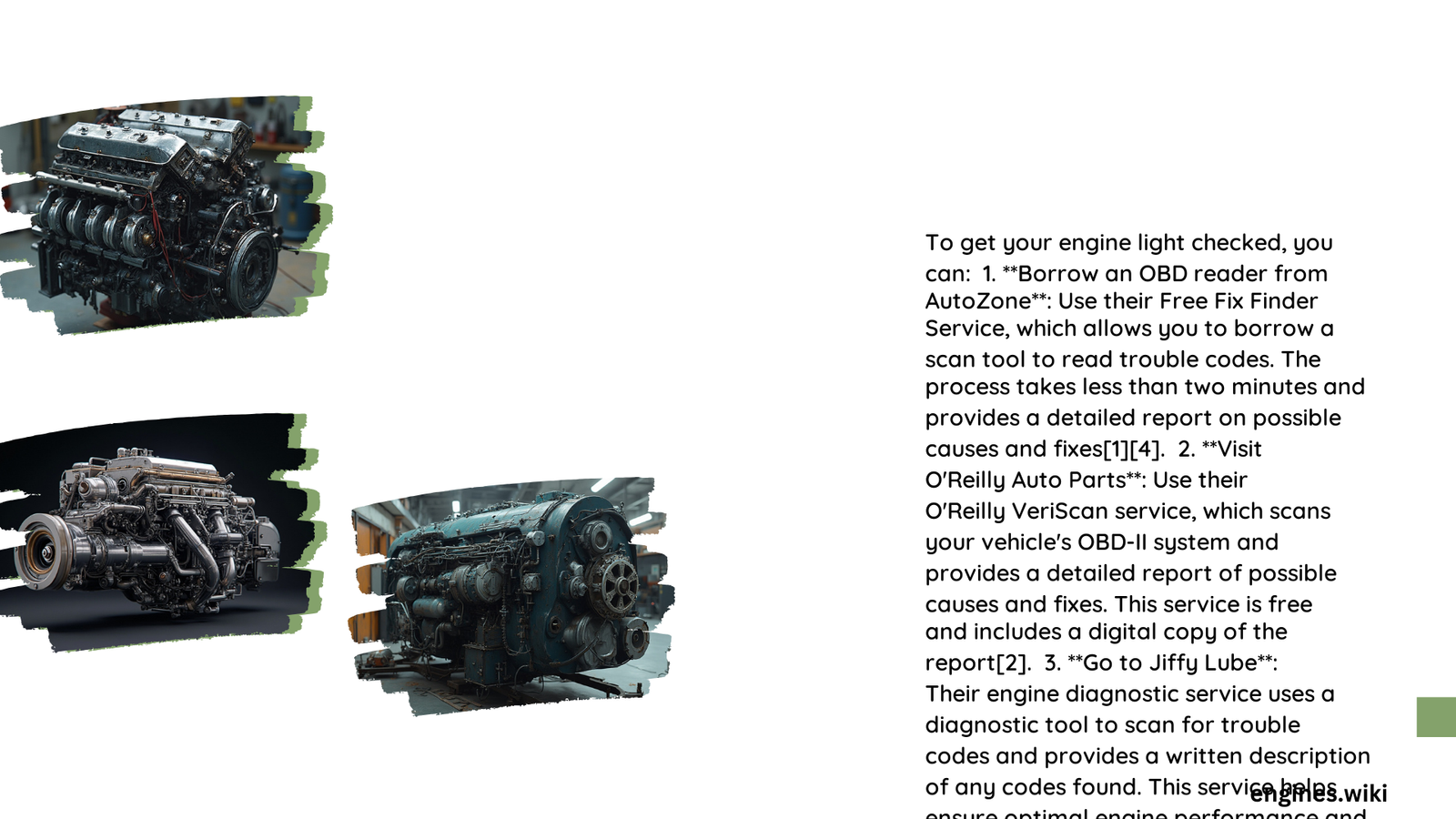The check engine light is a crucial indicator in your vehicle that signals potential issues with your car’s engine or emissions system. When this light illuminates, it’s essential to get your engine light checked promptly to prevent further damage and ensure your vehicle’s optimal performance. This guide provides comprehensive information on the process, tools, and costs associated with diagnosing and addressing check engine light issues.
What Are the Steps to Get Engine Light Checked?
Getting your engine light checked involves a systematic approach using specialized tools. Here’s a breakdown of the process:
- Locate the OBD-II port (usually under the dashboard)
- Connect an OBD-II scanner to the port
- Turn on the ignition without starting the engine
- Read the Diagnostic Trouble Codes (DTCs) displayed on the scanner
- Interpret the codes to identify the specific issue
Essential Tools for Engine Light Diagnosis
- OBD-II Scanner: The primary tool for reading DTCs
- Multimeter: For electrical troubleshooting
- Compression Tester: To diagnose engine-related issues
- Smoke Machine: For detecting vacuum leaks
- Advanced Scan Tools: For comprehensive diagnostics
What Are Common Check Engine Light Codes?

Understanding common check engine light codes can help you quickly identify potential issues:
| Code | Issue | Troubleshooting Step |
|---|---|---|
| P0455 or P0457 | Loose or Faulty Gas Cap | Check and tighten or replace the gas cap |
| P0133 or P0153 | Faulty Oxygen Sensor | Inspect and replace the oxygen sensor if necessary |
| P0420 | Catalytic Converter Failure | Inspect and replace the catalytic converter if needed |
| P0300-P0304 | Spark Plug/Ignition Coil Issues | Check and replace spark plugs or ignition coils |
| P0101 | Mass Airflow Sensor Problem | Inspect, clean, or replace the MAF sensor |
How Much Does It Cost to Get Engine Light Checked?
The cost of getting your engine light checked can vary:
- Free Diagnostic Services: Some auto parts stores offer free check engine light diagnostics
- Professional Service Center Costs:
- Basic Diagnostic Fee: $50 to $150
- Additional Repair Costs: Vary based on the issue (e.g., $200-$500 for an oxygen sensor, $500-$1,500+ for a catalytic converter)
What Causes the Check Engine Light to Activate?
Several factors can trigger the check engine light:
- Loose or faulty gas cap
- Faulty oxygen sensor
- Catalytic converter failure
- Engine misfires
- Failing engine sensors and electronic modules
- Emissions problems
When and How to Reset the Check Engine Light
- Address serious issues immediately if the light is flashing
- Use an OBD-II scanner to clear codes after repairs
- Seek professional assistance for complex issues
By understanding these aspects of getting your engine light checked, you can make informed decisions about your vehicle’s maintenance and potentially save on costly repairs.
References:
1. Automotive Repair Loveland
2. AutoZone
3. 26th Street Auto
